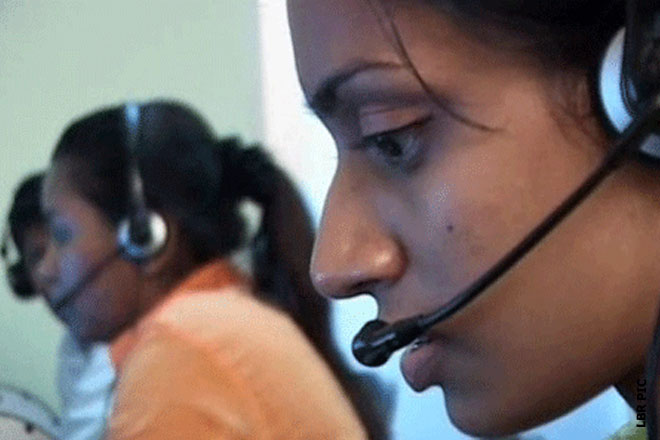Sri Lanka’s rupee move positive for IT BPO industry: official

Sep 17, 2015 (LBO) – Sri Lanka’s IT BPO sector, a thriving industry which targets a five billion dollar export revenue in 2022, is benefiting from the current rupee depreciation in the island.
“When there is a rupee depreciation here other countries will see Sri Lanka as a low cost destination,” Jeevan Gnanam, director operations of The Sri Lanka Association of Software and Service Companies told LBO.
“For the same dollar, the client can buy more services. So it helps. This means more business for us.”
Sri Lanka’s rupee fell to 140.90 against dollar yesterday after hitting a high of 140.97 and low of 140.25, dealers said.
Economists says depreciation helps exporters to boost exports, although international marketing expenses concurrently go up.
Sri Lanka’s information technology and business processing outsourcing sector brings 800 million dollars export revenue in to the country.
Earnings from exports of IT-BPM (business process management) or BPO (business process outsourcing) sector have shown a steady upward trend during the past decade.
The industry has set a target of one billion dollars in export revenue by 2016.
Over 300 IT and BPM companies operate in Sri Lanka. They are mostly small and medium-sized companies and few large global players.
Among the global IT-BPM companies operating in Sri Lanka include CMA-CGM, HSBC, WNS Global Services, Aviva, Microsoft, Industrial & Financial Systems (IFS), Copal Amba, RR Donnelley, Quatrro, Virtusa, Pearson, Valista, Millennium Information Technology and Innodata Isogen.
Currently, over 80,000 are employed in the IT and BPM industry in Colombo and the workforce is growing at over 20 percent year-on-year. The workforce is stable with very low attrition rates ranging from 10-15 percent.
Sri Lanka markets itself as a lower cost destination for outsourcing facilities. However, analysts question whether it’s right to pay lower amounts for people with the same qualifications doing the same work load.
A recent World Bank study revealed that the country’s labor costs ranked the lowest, in comparison to many other outsourcing destinations, SLASSCOM said.
The total cost per associate can be as much as 30 percent lower in many cases.
“Our strategy is to attract more small and medium sized companies to Sri Lanka as most larger companies go to India for BPO servicers,” he said.
“So we are looking at Australia, Japan and Nordic countries.”
He said the former government allocated about 200 million rupees on promoting country’s BPO sector but none of the money has been given.
“We hope with the new government that will actually change.”

Having said that mainstream companies who invest in more return to the buck is more considerable a small market share, compared to the huge money’s we spend on foreign spending, having the rupee drop in value is bad for the whole of Sri Lanka, as US$ is the main market in obtaining services from overseas, when we purchase automobiles in Japan, we do not pay the JPY based on it’s rate, but the US$, We first convert our Rupees into USD, then into JPY, so having a higher Dollar is not good for us, considering our debts, payments crisis, and other stupitional factors.